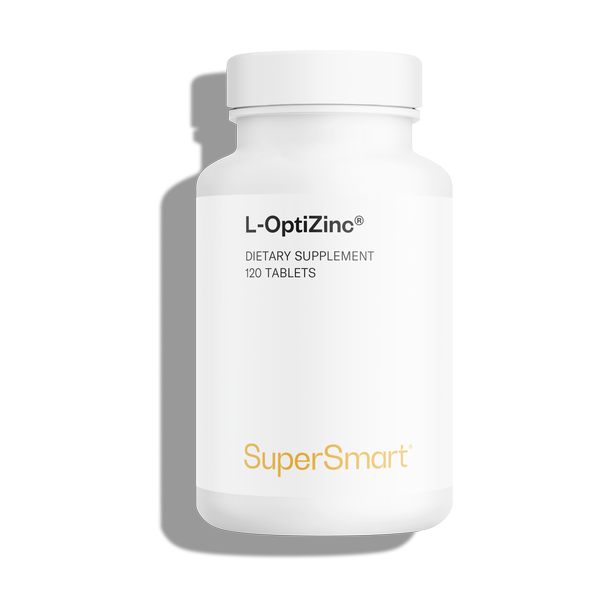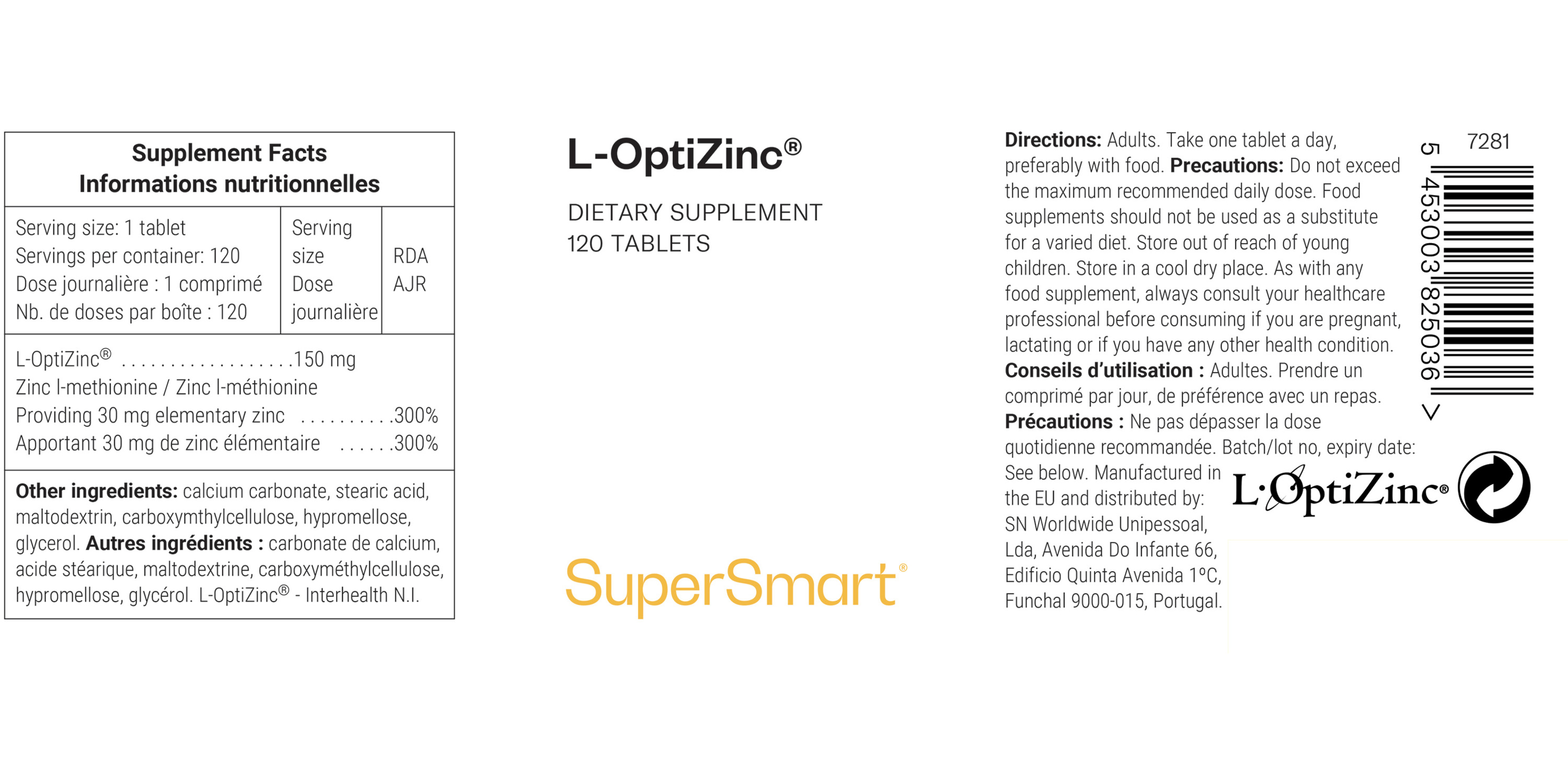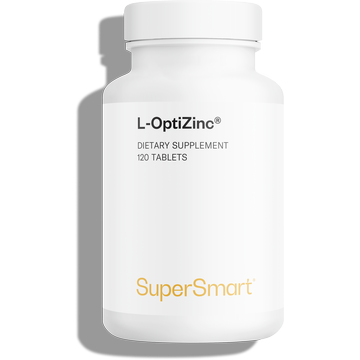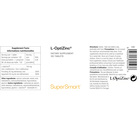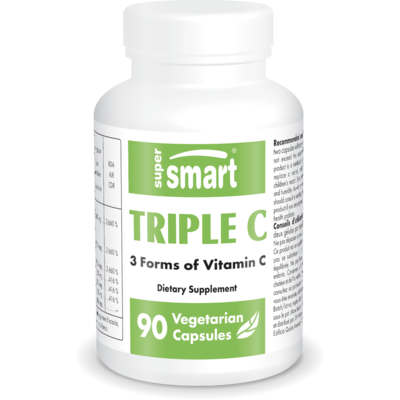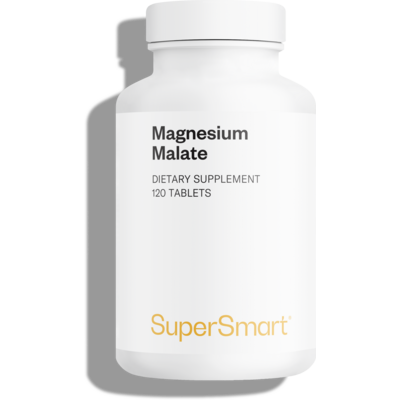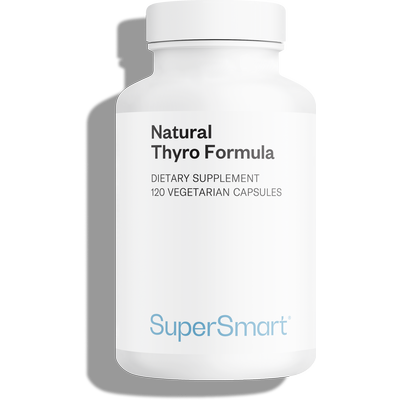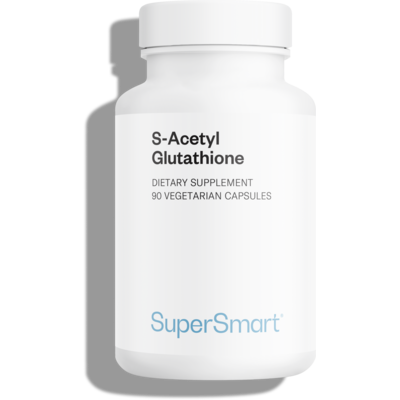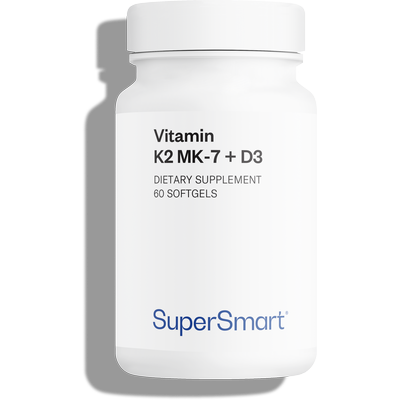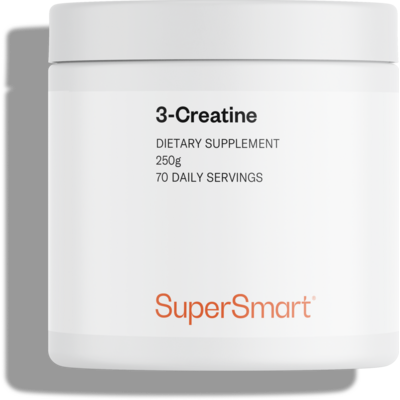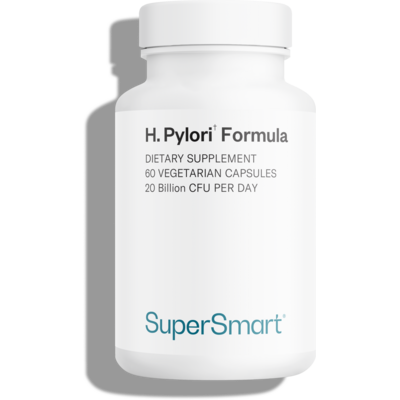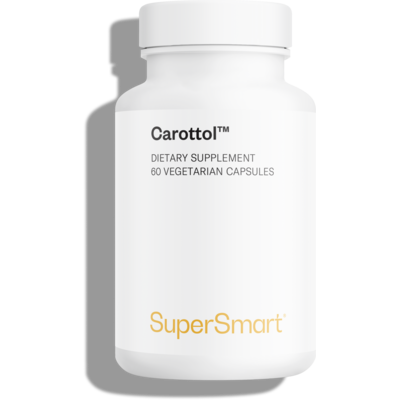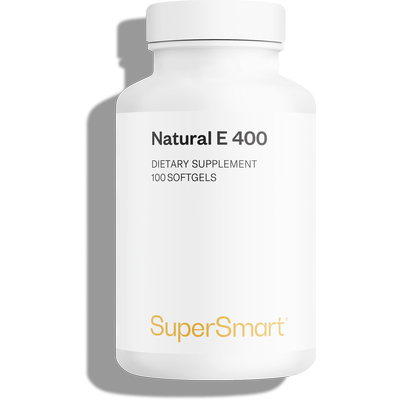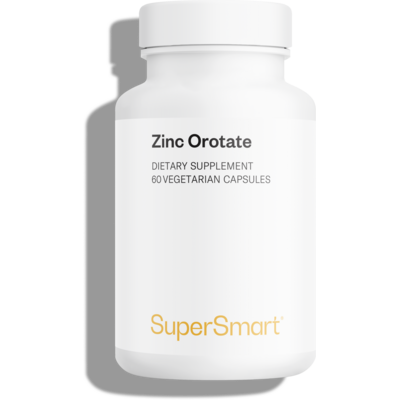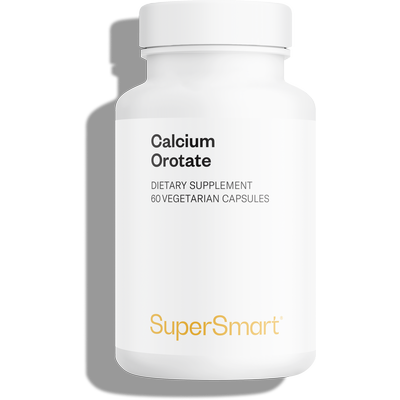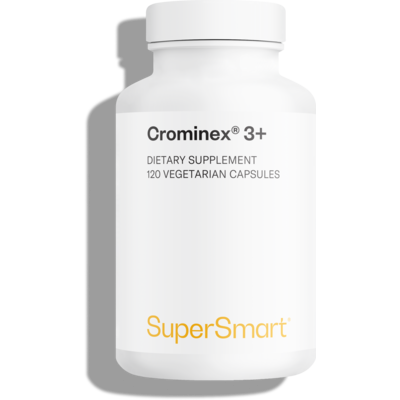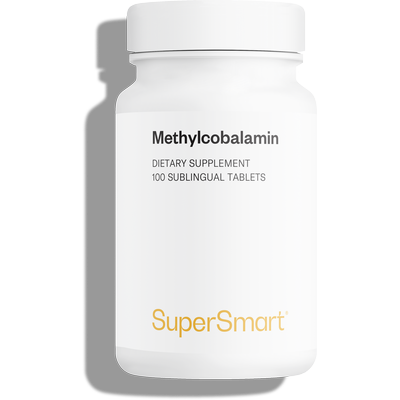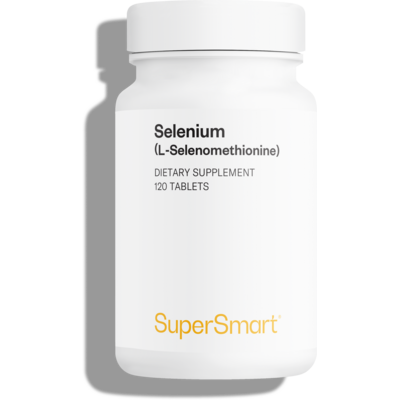Create Your Offer
What is L-OptiZinc®?
It is a unique, patented form of methionine-bound zinc, the amino acid best absorbed by the body. Studies show that SuperSmart's L-OptiZinc® formula is better absorbed, retained longer, and more effective than any other zinc supplement available.
In contrast to other zinc supplements, the bioavailability of zinc is not affected by the type of food or amount of fiber consumed. It also has greater antioxidant potency, equivalent to Vitamins E, C, and beta-carotene, offering several benefits and effective cell protection against free radical attacks.
On this page, we discuss all the L-OptiZinc health benefits, the importance of bioavailability, and the side effects of this vital supplement.
What are the Health Benefits of L-OptiZinc® 30 mg?
Zinc is a trace element essential to a number of vital cell functions, including growth, development, reproduction, and digestion, as well as cerebral, nervous, immune, and visual functions.
Zinc is required for the catalytic activity of more than 100 enzymes in the body. It also supports development and growth during pregnancy, childhood, and adolescence.
Considering that the body does not have a specialized zinc storage system, it is essential that you receive the daily recommended amount of this mineral through your food intake or supplements.
The Office of Dietary Supplements states that zinc has several health benefits, including the following:
- Promotes adequate immune function;
- Aids in wound healing;
- May shorten the duration and intensity of diarrhea;
- Could reduce the severity and duration of the common cold;
- Could delay the progression of age-related macular degeneration and vision loss.
Extensive studies have been conducted related to specific zinc health benefits and side effects. Keep reading to learn about how zinc benefits t-lymphocytes, why it has high bioavailability, and why there are so few side effects of L-OptiZinc® compared with other supplements.
It Helps Activate T-Lymphocytes
The best form of zinc – methionine-bound zinc – has been studied to play a very important role in the function of the immune system. It is essential for developing and activating T-lymphocytes – white blood cells that fight infections. In humans, zinc deficiency results in a decrease in T lymphocytes, which hinders the body's ability to combat infections and heal wounds.
Because of the effect zinc has on immune support, the following benefits can also be found:
- Methionine-bound zinc, found in L-Opti Zinc 30 mg, is an essential component of zinc/copper superoxide dismutase, an important antioxidant enzyme, capable of neutralizing harmful superoxide radicals. Maintaining proper levels of superoxide dismutases (SOD) and zinc is key to longevity, as aging is associated with damage caused by reactive oxygen species.
- Methionine-bound zinc may also ease symptoms and reduce the duration of the common cold, according to some studies.
- According to the WHO, zinc supplements could reduce the incidence of respiratory infections, such as the cold and flu. It may also reduce the generation of inflammatory cells and markers of oxidative stress.
- Research indicates that zinc halves the risk of developing pneumonia in elderly people in nursing homes and reduces antibiotic treatment times and convalescence periods.
- Other studies show that zinc can regulate cyclo-oxygenase-2 (COX-2), an enzyme involved in inflammation and pain. A study on an animal model showed that zinc deficiency encouraged tumor growth and an excess of COX-2, while supplementation reduced levels of the latter and the incidence of tumors.
- Zinc is also proven to be an essential mineral for growth and maturation. Deficiency is linked with cognitive deficits and delayed growth, including a delay in male and female puberty.
Combined, these health benefits boost overall health and general well-being.
It Has High Bioavailability
When you want a fast-acting supplement, you look at its bioavailability. This term describes the absorption of a drug or supplement into systemic circulation. What it really comes down to is that some forms of zinc take longer to work within the human body than others.
However, methionine-bound zinc is often the best form of zinc supplements if you are looking for maximum bioavailability. Studies show that zinc bioavailability of this form is faster than other variants.
But there are other factors that can hinder zinc bioavailability:
- Digestive disorders: Conditions such as irritable bowel syndrome, Crohn's, celiac disease, and chronic heartburn can impact the body's ability to absorb nutrients.
- Alcohol: This substance promotes the breakdown of pills quickly before they reach the small intestine, where the majority of absorption occurs. It can also damage the stomach lining, which reduces the absorption of minerals.
- Caffeine: Just like with alcohol, caffeine reduces nutrient absorption, but it also promotes the excretion of minerals.
- Stress: Being under constant stress puts your body under a lot of pressure. Your systems go into "fight or flight" mode, which hits the digestive system and affects how you absorb nutrients.
If you want L-OptiZinc 30 mg supplements with high bioavailability, you will want to choose a high-quality product.
L-OptiZinc Side Effects Are Uncommon
Fortunately, there are very few L-OptiZinc recognized side effects, and taking this supplement is considered relatively safe. According to the Office of Dietary Supplements, zinc toxicity is a rare occurrence. In fact, it is perfectly safe to take 40 mg or less of zinc each day.
However, if you currently take antibiotics, you may want to speak with your healthcare provider before starting a zinc regimen. Some supplements can interact with antibiotics, which may reduce their effectiveness, especially if taken at the same time.
In some instances, toxicity can occur if too much zinc is consumed. The symptoms of high zinc intake include a loss of appetite, vomiting, nausea, diarrhea, headaches, and abdominal cramps. Taking too much zinc can also cause the body to be low in copper, reduce immune system function, alter the body's iron function, and cause a reduction in high-density lipoproteins.
Another commonly cited side effect of zinc supplements is digestive issues. However, the impact of zinc on digestion correlates with bioavailability. And with the L-OptiZinc® supplement, you receive methionine-bound zinc, which has a high absorption rate and limits the impact on digestion.
WARNINGS
Do not exceed the recommended daily dose. This product is a nutritional supplement and should not be used as a substitute for a varied and balanced diet or a healthy lifestyle.
STORAGE
Store in a cool, dry place away from direct sunlight, heat, and humidity. Keep out of reach of children.
PREGNANCY AND MEDICAL CONDITIONS
If you are pregnant, breastfeeding, or have any medical conditions, consult your healthcare provider before using this product.
SUPPLEMENT INTERACTIONS
Consult your healthcare provider before use, especially if you are taking any medications or other supplements as there may be potential interactions.
Need Help?
Phone Number
+1 (786) 522-3907
From 9 am to 6 pm (EST)
Email Address
You May Also Like

